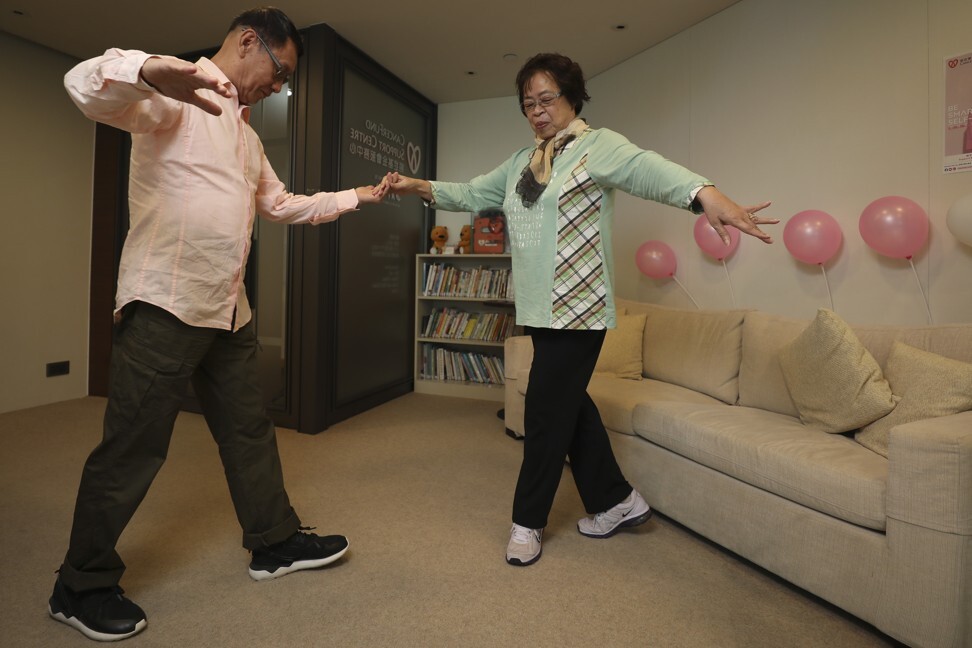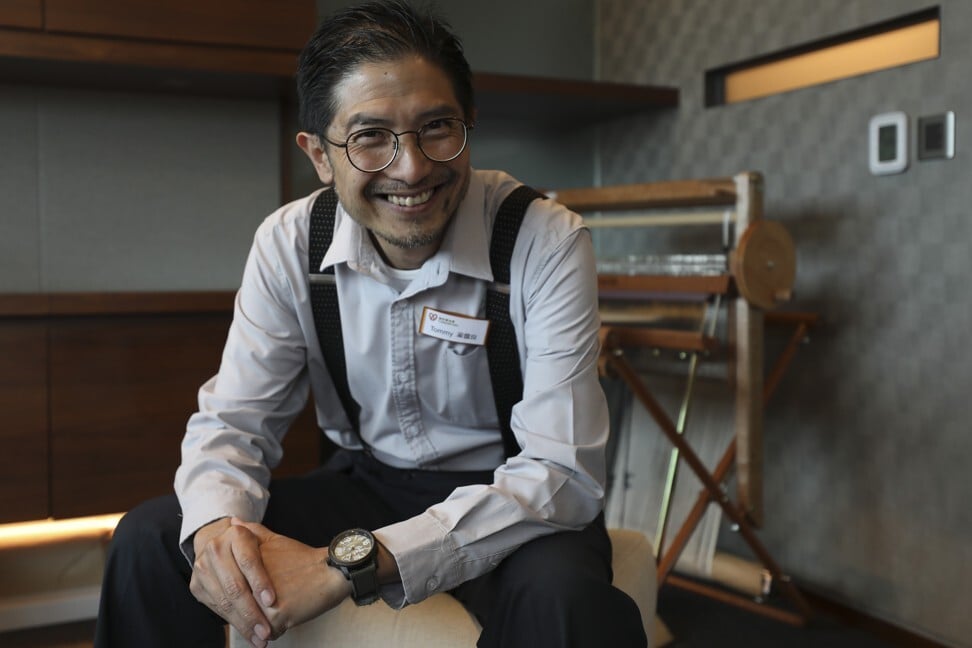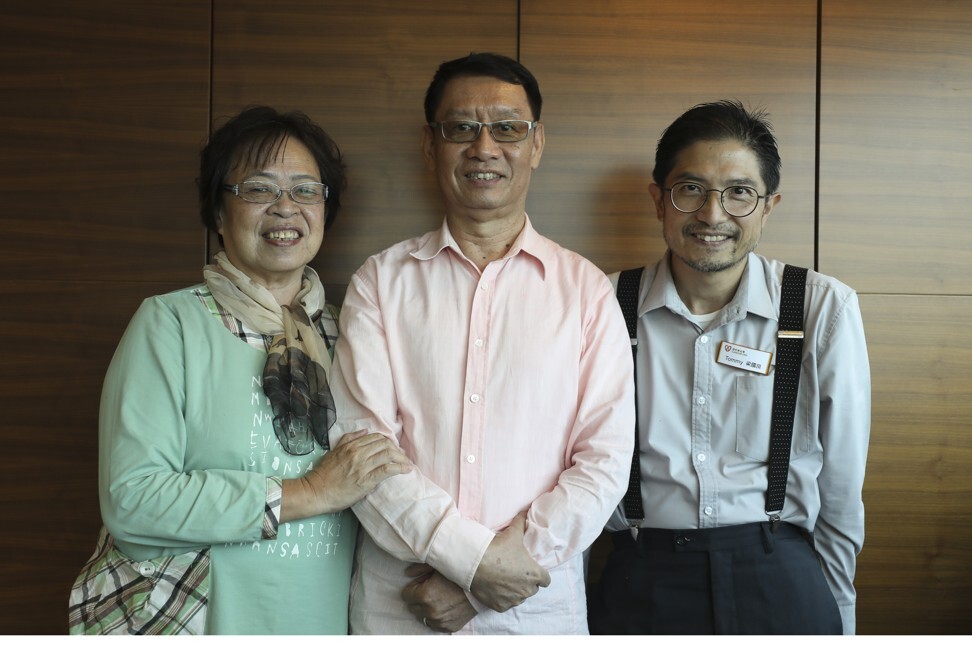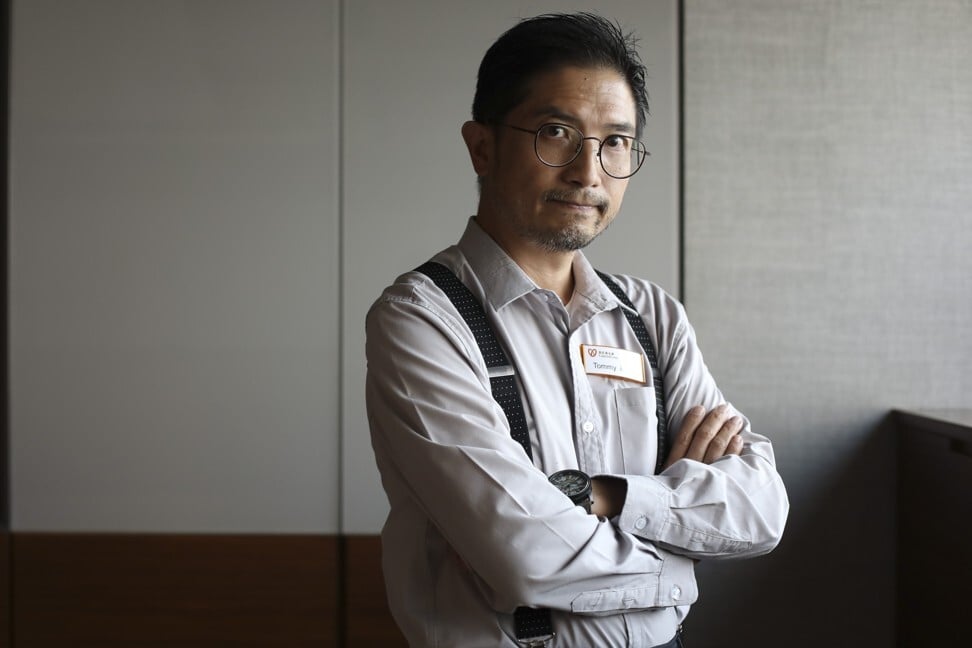
Movember 2020: how prostate cancer survivor’s early diagnosis improved his quality of life – six warning signs of the disease
- After heeding the warning signs, early detection lead to Chui Kui-fan beating prostate cancer, and he wants more men to be aware of the dangers
- His newfound joy for life has also helped his wife with her depression. They both attended dance classes and have deepened their relationship
With the month-long Movember campaign to raise awareness of men’s health – physical and mental – under way, a prostate cancer survivor has issued a reminder to men to be mindful of changes that could need urgent attention.
Chui Kui-fan was listening to the radio when a Hong Kong government announcement about prostate cancer and its symptoms in 2009 made him listen up.
He was a busy property estate management supervisor at the time, and it dawned on him that his urinary habits had changed. As the broadcast mentioned, he had a weak flow that wasn’t smooth or focused, and halted intermittently. And, he recalls, “I never stopped feeling the urge” to pee.

In 2011, a score slightly above normal prompted a biopsy, which still did not raise alarms. A year later, though, a higher PSA score prompted another biopsy – which identified cancerous cells. Chui was 61 at the time, with no family history of prostate cancer.
The affliction is the third most common cancer in men in Hong Kong. The Hong Kong Cancer Registry noted 2,240 new cases in 2017, an increase of 17.2 per cent from 1,912 cases the previous year.
Prostate cancer survivor’s advice to all men: get a PSA test if you are 50 or over
Though Chui was anxious about his diagnosis, all that was required was a robot-assisted operation at Princess Margaret Hospital to remove the prostate gland. “I was diagnosed in July, my operation was in August,” he says, adding he was grateful to have had a smooth recovery.
Post-op, Chui was a changed man. “Before cancer, I worked, worked, worked. I earned money … nothing else,” he says. “Afterwards, I realised I should focus on quality of life.”

In the music session, he took up the African drums, which he had played in his youth. “My memory of that time came back, the rhythm … everything,” he recalls. “It was an emotional relief.”
Those sessions revived his passion for music, and he resumed another pastime, playing the harmonica. “Now I feel confident … and can play for one or two hours [a time],” he says.
He wasn’t active before his brush with cancer, but exercise is now a part of his daily life. Every morning he goes to a park in Tsuen Wan to practise qi gong, which integrates posture, movement, breathing techniques and focused intent.
I have friends, many of whom are not aware of prostate cancer and don’t care about their health. Don’t ignore any change in your urinary condition, this is very important
Chui and his wife of 41 years, Liu Ling, also benefited from HKCF’s Dance for Married Couples group programme in 2015. It was a tonic not only for his recovery, but for her long-standing struggle with depression.
“I have my own stress, and sometimes it spills onto my spouse,” says the 67-year-old Liu. “He knew I loved dancing and wanted to bring me out of the darkness through dancing.”
Despite her initial reluctance, she grew to relish the sessions, and the two grew more intimate and understanding towards each other as a result. Peer instructors lead the cha-cha, jive and other sessions at the beginning of the class. At the end, a social worker briefs the couples about their issues.
The programme is part of HKCF’s Prostate Cancer Survivorship Project “Going Through”, created in 2013 to support survivors and loved ones through cultural, physical and psychosocial challenges.

Tommy Liang Kwok-leung, a service officer at the NGO and a thyroid cancer survivor himself, did the briefings with the couple. Also a counsellor, he provided psychotherapy sessions for Liu. “As a social worker, I believe in empowerment,” Liang says.
He felt that having used the services, the couple could be partners in providing the services to others, and invited them to share their experiences – of dancing and cancer recovery – in the classes.
Liang himself is doing his bit for men’s health by not shaving in November, the fifth year he is taking part in Movember. “We need to put a positive image out to the public, to tell them even if you’re diagnosed with prostate cancer, you can be a different person and make an impact on society because of that illness,” he says.

“We urge all men over the age of 50 to familiarise themselves with prostate cancer. Early detection saves lives,” HKCF, a local partner with Movember, said.
“I have friends, many of whom are not aware of prostate cancer and don’t care about their health,” says Chui, adding that to neglect these issues is a mistake. His recovery taught him early detection and treatment are key to surviving and thriving. He urges: “Don’t ignore any change in your urinary condition, this is very important.”

Six warning signs
According to the Mayo Clinic, of Rochester, in the US state of Minnesota, in its early stages prostate cancer may cause no signs or symptoms. But as prostate cancer advances, it may cause these problems:
1. Trouble urinating
2. Decreased force in the urine’s flow
3. Blood in semen
4. Discomfort in the pelvic area
5. Bone pain
See a doctor if you have any of these signs. Detected early, prostate cancer can be treated successfully.

